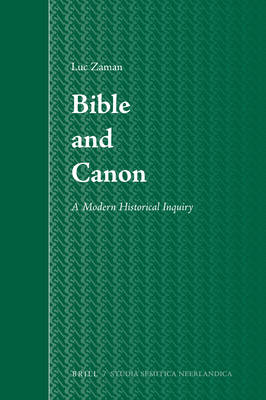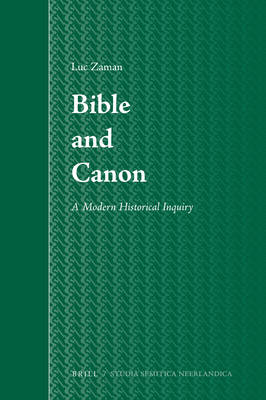
Je cadeautjes zeker op tijd in huis hebben voor de feestdagen? Kom langs in onze winkels en vind het perfecte geschenk!
- Afhalen na 1 uur in een winkel met voorraad
- Gratis thuislevering in België vanaf € 30
- Ruim aanbod met 7 miljoen producten
Je cadeautjes zeker op tijd in huis hebben voor de feestdagen? Kom langs in onze winkels en vind het perfecte geschenk!
- Afhalen na 1 uur in een winkel met voorraad
- Gratis thuislevering in België vanaf € 30
- Ruim aanbod met 7 miljoen producten
Zoeken
Omschrijving
Several decades ago canonical criticism came to dominate the study of the canon and even indeed all of biblical studies by its emphasis on the biblical canon's dogmatic content. An investigation of this canonical criticism brings its weak points to light: most notably the insufficient attention that is given to the canon's historical development.
This new historical study begins with the earliest stages of the process of forming the canon rather than its final stages as most studies do. It shows how the canon, in essence, was already formed in the early stages of its historical development. It is essentially, synchronically, an authoritative unification of a range of traditions within the faith community, and diachronically, the guide that draws the dynamics of these traditions beyond their discontinuities to produce a continuity.
This new historical study begins with the earliest stages of the process of forming the canon rather than its final stages as most studies do. It shows how the canon, in essence, was already formed in the early stages of its historical development. It is essentially, synchronically, an authoritative unification of a range of traditions within the faith community, and diachronically, the guide that draws the dynamics of these traditions beyond their discontinuities to produce a continuity.
Specificaties
Betrokkenen
- Auteur(s):
- Uitgeverij:
Inhoud
- Aantal bladzijden:
- 720
- Taal:
- Engels
- Reeks:
- Reeksnummer:
- nr. 50
Eigenschappen
- Productcode (EAN):
- 9789004167438
- Verschijningsdatum:
- 9/04/2008
- Uitvoering:
- Hardcover
- Formaat:
- Genaaid
- Afmetingen:
- 160 mm x 240 mm
- Gewicht:
- 1309 g

Alleen bij Standaard Boekhandel
+ 699 punten op je klantenkaart van Standaard Boekhandel
Beoordelingen
We publiceren alleen reviews die voldoen aan de voorwaarden voor reviews. Bekijk onze voorwaarden voor reviews.









